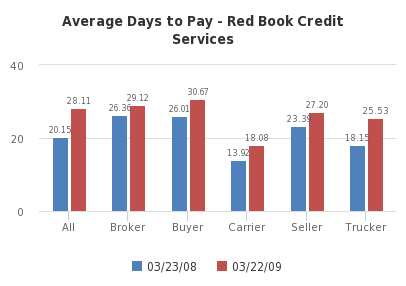Let's hear it for vegetables - the White House victory garden
Created by The Packer's National Editor Tom Karst
"How government makes us fat" was the headline for an opinion piece in philly.com. Now somehow it will be less so with the Obama vegetable garden and more money for nutrition programs. That's an optimistic view, but perhaps we as a country are becoming more serious about eating right, and the White House vegetable garden may be the inspiration we need.
News that the EPA has sent a proposal to the White House stating that global warming is endangering the public health and welfare. Pundits say this could "light a fire" under Congress to get moving on global warming legislation, which in the end could endanger the pocketbooks of many Americans.
Labels: sustainability
From United Fresh today:
From the Farm Bureau this afternoon:
Packer Managing Editor Fred Wilkinson here.
"Thanks to the latest protectionist move by Congress to dodge our free-trade obligations with Mexico, in six to eight weeks, more than 20,000 pounds of California strawberries that ordinarily would be headed south of the border will have nowhere to go. The 80,000 people employed by the industry, however, know exactly where their jobs will be headed -- into thin air. At least that's the worst-case scenario if Congress doesn't find a way to honor the North American Free Trade Agreement and give Mexican trucks permission to travel more than a few miles north of the border, as required by the treaty."
TK: Lobbyists within the industry and in other sectors are apparently working to see if the Obama Administration can provide a fix that will placate Mexico regarding the termination of funding for a pilot program that allowed Mexican trucks to operate beyond the border without going against the intent of Congress. In a time when specialty crop traders face enough obstacles already, this additional roadblock is an unwelcome aggravation, and - as some suggest - could be the start of a trade war with our southern neighbor. Yet there appears to be a stronger likelihood for a fix from the Administration, says this report from Bloomberg.
It is taking longer for fresh produce sellers to get paid now than it was the same time last year, according to data from Red Book Credit Services. Pam Ayers of Red Book passes along the data used in this chart, which confirms the hunch that the slumping economy is taking on a toll on the fresh produce sector.

Statistics from the USDA trade database show the following year on year results for U.S. apple and pear exports, by destination country:
Growing vegetables is probably easier than you think" was one line from one of the endless stories about vegetable gardening I read this week. Easy or hard, any vegetable garden of mine is doomed for failure. Perhaps I should give it a try and confirm my suspicions....
People always say that foods with the most vibrant colors are the ones that are most healthy for you. While this is certainly true to an extent (dark green leafy vegetables contain high concentrations of Vitamin K and other nutrients), some of our dullest-colored fruits and vegetables are commonly misunderstood as nutritionally bereft. I'll blame it on iceberg lettuce, the cheap underdog of salad greens. In any case, white cabbage happens to be one of the most nutritious foods for you, packed with Vitamins K, C, A, B and even calcium, iron and fiber. White beans? They've got as much protein and fiber as red or pink pinto beans. The oft-overlooked celery, with its greenish pallor has some calcium and protein in addition to Vitamins A, C and K, and is pretty low in calories to boot. Perhaps the palest produce of them all, white cauliflower is a dense nugget of antioxidant power (and don't forget to eat the stems, too). The list goes on, but the point's clear (or off-white), don't judge a plant by its color alone.
From the federal docket, a March 23 comment by Charles Hall of the Georgia Fruit & Vegetable Association on the Administration's pullback on H-2A reforms.